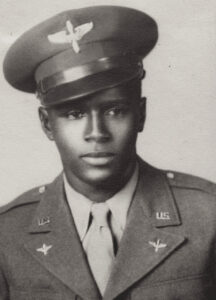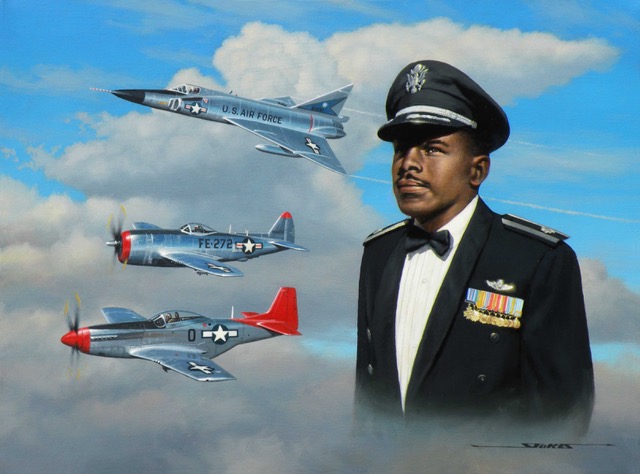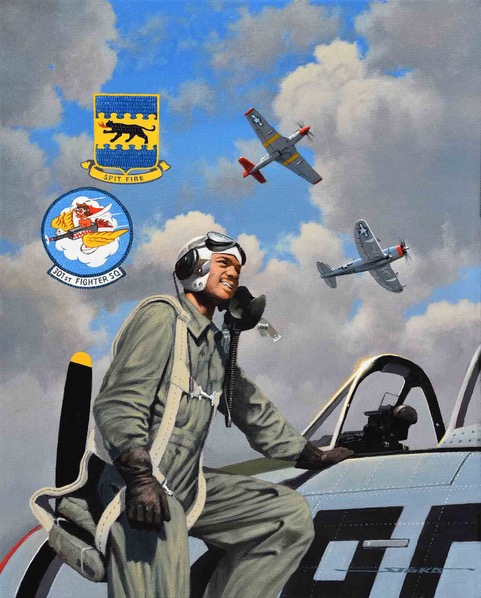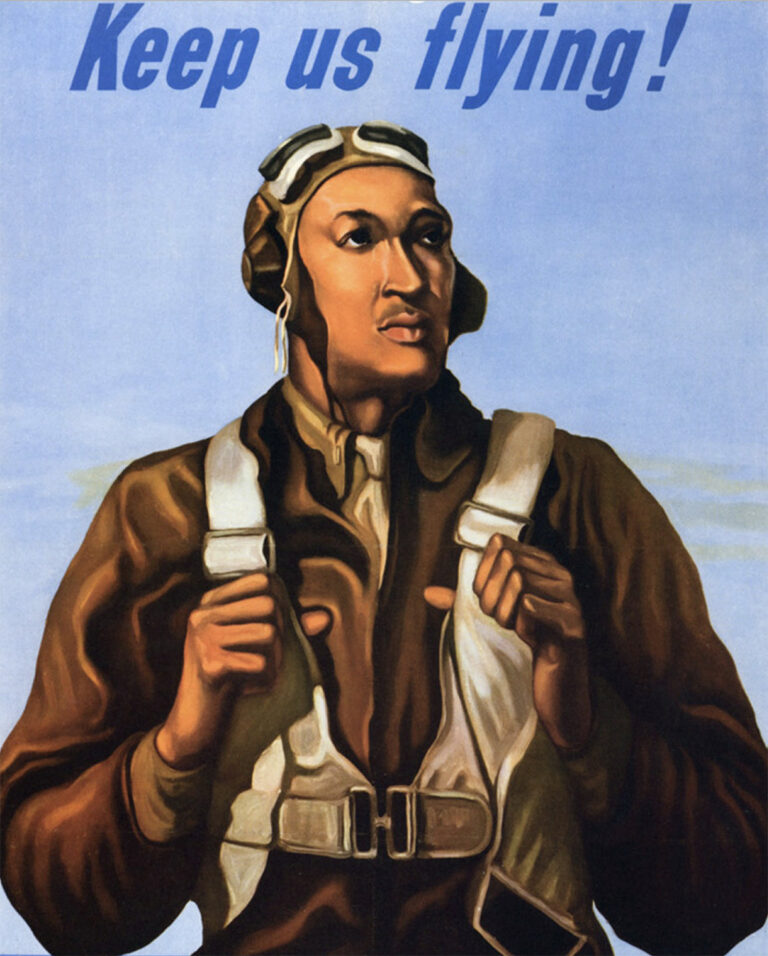James Harvey attempted to enlist with the United States Army Air Corps in January 1943; however, he was turned down because of his race.
Drafted into the U.S. Army in April 1943, Harvey was initially assigned to the United States Army Air Corps as an engineer. After applying for the Aviation Cadet Training Program, Harvey took the Cadet Training Exam at Bolling Field, and was admitted to the Tuskegee Flight School’s Aviation Cadet Training Program. After attending Basic Training in Biloxi, Mississippi for thirty days, Harvey was transferred to Tuskegee Army Air Field to begin pilot training. On October 16, 1944, Harvey graduated from the Tuskegee Flight Program Army Air Corps as a member of Class 44-I-SE, receiving both his wings and a commission as Second Lieutenant. He was then assigned to the 99th Fighter Squadron that was now stateside in Godman Field, Kentucky. The 99th did not return to action in WWII, however Harvey’s time in combat was yet to come.
He stayed in what was becoming the United States Air Force. In 1947, President Truman signed a directive to integrate the armed services, but for a while, nothing changed. Then the USAF had their first aircraft gunnery meet, the 1949 William Tell Competition. In the meet, Harvey and fellow 332nd Fighter Group pilots Harry Stewart and Alva Temple, flying P-47N Thunderbolts, showed everybody just how good they were by handily beating all the other USAF fighter squadrons!
The rest of the Air Force was astounded at the results, so the USAF top brass decided the 332nd needed to be disbanded and the members scattered throughout the Air Force.
Harvey was transferred to an F-80 squadron at the Misawa Air Base, Japan as a Fighter Pilot and Flight Commander. He became the first African American jet fighter pilot to engage in combat during the Korean War. Harvey was awarded the Distinguished Flying Cross and several other Air Medals leading four F-80s amidst bad weather conditions during a bomber support mission October 16, 1950 near Yongsan, Korea. Harvey flew 140 missions in Korea.





